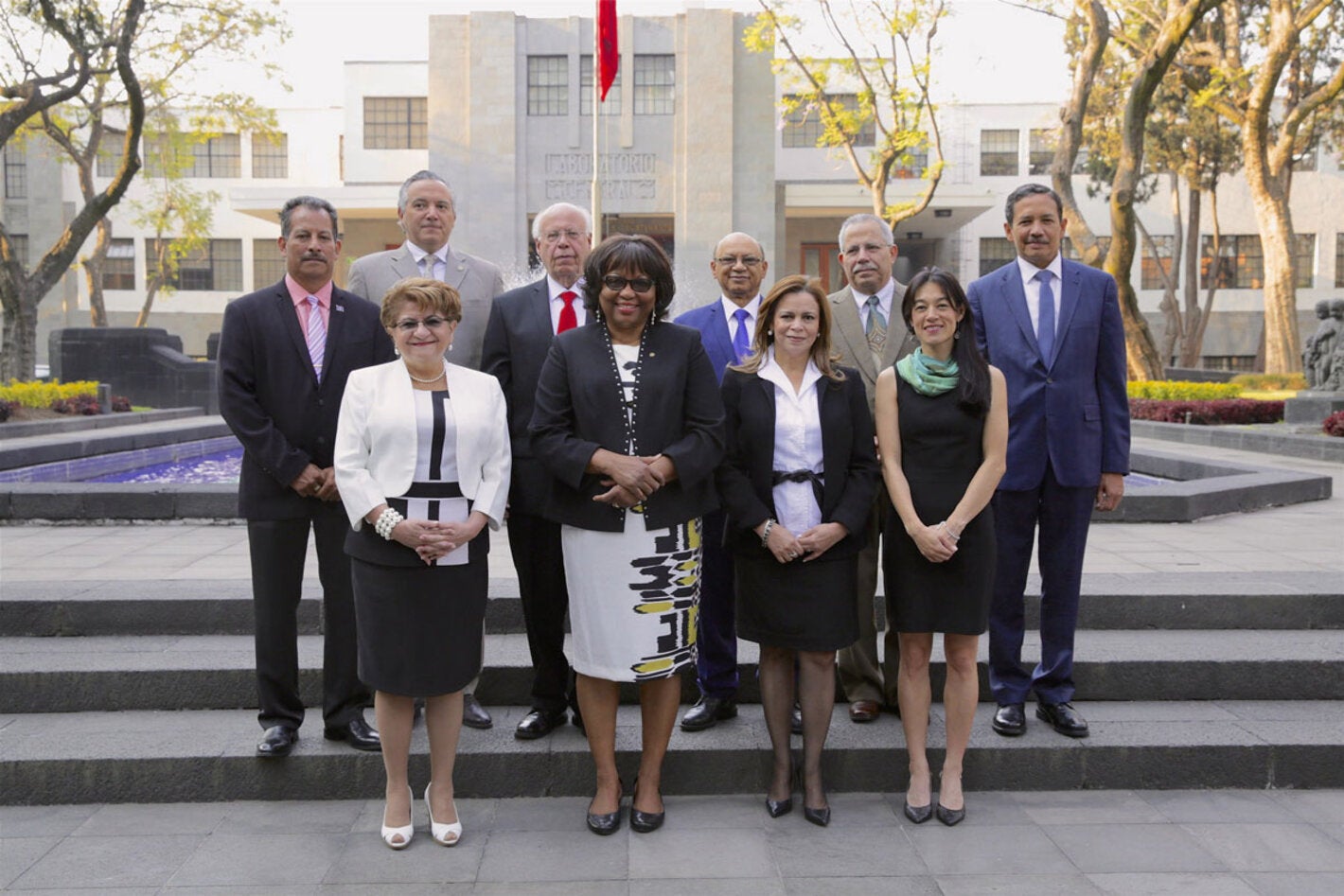
In 2015, almost 64 million people in the Americas were living outside their country of origin, 36% more than in 2000. Irregular migration and substandard conditions have negative consequences for health.
Mexico City, 25 April 2017 (PAHO) - The ministers of health and senior health authorities of Belize, Colombia, Costa Rica, the Dominican Republic, El Salvador, Guatemala, Honduras, Mexico, Nicaragua, and Panama have agreed to work together to meet the health needs of migrants in Mesoamerica.
Representatives of the 10 countries signed the Ministerial Declaration on Migration and Health, which outlines a series of agreements on joint efforts to improve the available information on the health situation of migrants and forge partnerships to meet their health needs in a comprehensive and timely manner.
The ministers of health also made a commitment to promoting changes and improvements in their countries' regulatory frameworks that would make it possible to meet the health needs of migrants, share experiences, strengthen national and regional migration and health policies to provide comprehensive care for migrants, and improve health surveillance of the in-transit population. The Pan American Health Organization (PAHO) provided technical support for drafting the declaration.
"Migration is one of the pressing issues of humanity in the 21st century", declared Mexico's Secretary of Health, José Narro, who hosted the meeting. Central America, North America, and the Caribbean together constitute the world's most significant territory of migrant origin, transit, destination, and return. Between 2000 and 2015, the number of migrants in the Americas grew by 36% to almost 64 million, 48% of whom were women.
"The declaration that we are signing contains a series of commitments that will enable us to learn more about the health of migrants, share experiences, and take concrete action," said Narro.
Costa Rica's Minister of Health, Fernando Llorca Castro, acknowledged the need to improve information systems in order to document the health situation of migrants. "We know that they are generally a young, healthy population seeking opportunities," he said, "but that at some point in their journey, they fall victim to violence and accidents, with consequences for their physical and mental health."
The circumstances that migrants face at the different stages of the migration cycle, such as lack of adequate housing, contaminated food and drink, and little access to basic health services and sanitation expose them to risks to their safety and their physical and mental health.
"The evidence indicates that the farther irregular migrants travel from their country of origin in substandard conditions, the more their health deteriorates," noted PAHO Director Dr. Carissa F. Etienne, who called on the countries to treat migrants "with sensitivity and dignity" and to approach the issue from a human rights perspective.
"Migration impacts people's physical and mental health because of the uncertainty and aggression they experience," commented El Salvador's Minister of Health, Violeta Menjívar, stating that her country has an office for assistance to migrants in the international airport, and nine more at border crossings.
During the meeting, the Mesoamerican authorities declared that the health of migrants is a "shared responsibility" and that efforts should be made to address the social determinants beyond the health sector that affect it.
The Director of PAHO offered the Organization's support in implementing the actions agreed upon and sharing the region's experience in international forums.
The declaration was signed by Secretary of Health José Narro of Mexico; Ministers of Health Pablo Marín of Belize, Fernando Llorca Castro of Costa Rica, Violeta Menjívar of El Salvador, and Lucrecia Hernández Mack of Guatemala; and Secretary of Health Delia Rivas of Honduras. Vice Ministers of Health Eric Ulloa of Panama and Francisco Neftalí Vázquez of the Dominican Republic, Secretary General of the Ministry of Health of Nicaragua, Carlos Saenz, and Ambassador Extraordinary of Colombia in Mexico, Patricia Cárdenas Santamaría, also signed. Dr. Etienne participated as an observer of the signing.
The declaration is based on prior country commitments to the health of migrants, such as PAHO and WHO resolutions on the health of migrants and universal access to health and universal health coverage, the 2030 Agenda for Sustainable Development, the New York Declaration for Refugees and Migrants of the United Nations of September 2016, and resolutions of the Organization of American States (OAS) on the human rights of migrants.



